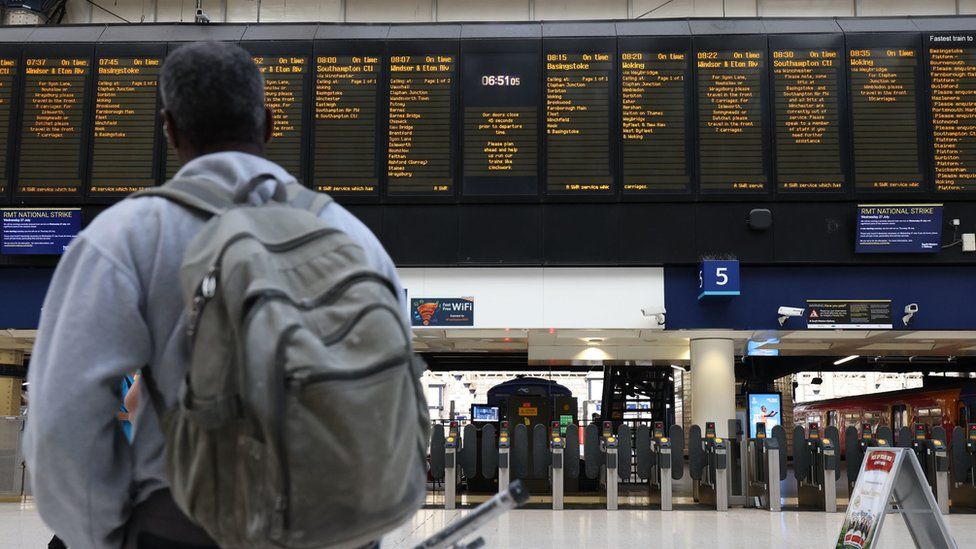ARTICLE AD BOX
 Image source, PA Media
Image source, PA Media
Train drivers will go on strike on two days in October as part of a long-running dispute over pay.
Unions confirmed on Tuesday that drivers at 12 train companies will walk out on 1 and 5 October.
The strikes are set to affect travel to and from the Conservative party conference in Birmingham between 2 and 5 October and the London Marathon.
The body which represents train firms said "thousands" of marathon runners could have their journeys disrupted.
The race on 2 October is not on a strike day, but services can be disrupted on the days following action as trains are not in the correct locations.
"These strikes will once again hugely inconvenience the very passengers the industry needs to support its recovery from the ongoing impact of the pandemic," the Rail Delivery Group said.
Train driver's union Aslef, gave notice of the latest strike to the train companies on Friday, but did not make a a public announcement at the time now "as a mark of respect for the monarch".
A strike had been planned for 15 September, but was postponed following the announcement of the Queen's death.
The union said it had successfully negotiated pay deals with nine train companies this year, but remained in dispute with some firms which it claimed hadn't offered any deal and where drivers hadn't had a pay increase since 2019.
"We would much rather not be in this position. We don't want to go on strike - withdrawing your labour, although a fundamental human right, is always a last resort for this trade union - but the train companies have been determined to force our hand, said Mick Whelan, Aslef's general secretary.
"The companies with whom we are in dispute have not offered us a penny. It is outrageous that they expect us to put up with a real terms pay cut for a third year in a row. And that's why we are going on strike."
The Rail Delivery Group, which represents train companies, said the strikes were "not in the long-term interests of rail workers or building a sustainable rail industry.
"We want to give our people a pay rise, but without the reforms we are proposing, we simply cannot deliver pay increases," a statement said.
The BBC understands other rail workers such as guards and signalling staff who are members of the RMT Union, will also take part in another day of industrial action on 1 October.
A series of large-scale rail strikes has already happened in recent months, causing disruption for millions, with unions wanting pay increases in line with the rising cost of living.
Rail bosses say they want to give workers a pay rise. But they and the government insist changes are needed to "modernise" the railway, end some working practices and save money.
They argue that with passenger revenue lower than before the pandemic, and after billions of public money kept services going, neither taxpayers nor passengers should have to pay more to cover the funding gap. So higher wages must be funded by reforms.

 2 years ago
52
2 years ago
52








 English (US) ·
English (US) ·